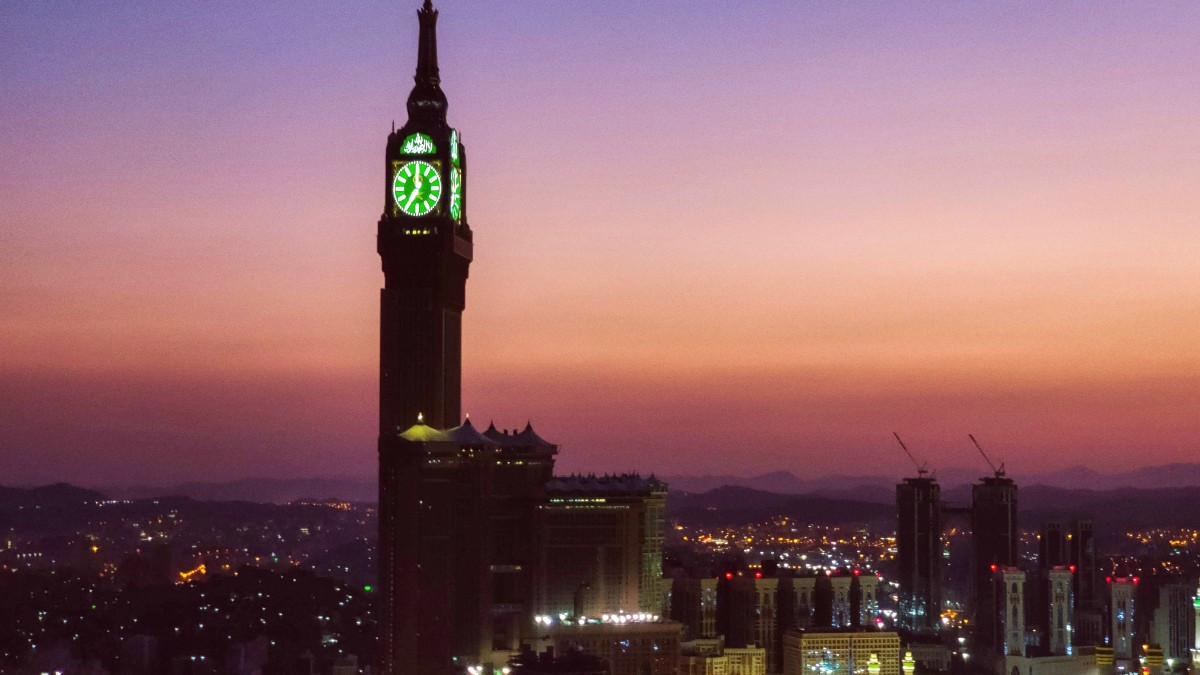
Saudi Arabia
Saudi cuisine deeply influenced by Bedouin traditions, emphasizing hearty, simple dishes. Islamic dietary laws (Halal) strictly govern all food preparation.
Historical trade routes and continuous pilgrim influx have blended Middle Eastern, North African, and South Asian flavors into the local palate.
All food served publicly is Halal. Pork and alcohol are strictly forbidden by law throughout Saudi Arabia. Do not attempt to consume or bring these items.
If eating traditional dishes by hand, use your right hand. The left hand is considered unclean.
Some restaurants may have separate sections or designated areas for families (women and children) and single men. Observe these arrangements.
This national dish features flavorful basmati rice, tender meat (chicken, lamb, or sometimes camel), and a blend of mixed spices.
Widely available in local Saudi and Yemeni restaurants.
Mandi slow-cooked meat (often lamb or chicken) prepared in a tandoor-like oven. This cooking method gives the meat a distinct smoky flavor.
Meat incredibly tender.
A specialty of the Hejaz region, Saleeg consists of white rice cooked with milk or broth, a creamy, risotto-like consistency. It typically comes served with grilled chicken or meat.
A local favorite.
A staple, especially during Ramadan. Mecca a major hub for various types of dates, including the famed Ajwa dates. Purchase them fresh from local markets.
Luqaimat: Sweet fried dough balls drizzled with syrup. Basbousa: Sweet semolina cake soaked in fragrant syrup.
Found predominantly within 5-star hotels around the Grand Mosque. They offer international cuisine alongside elevated Saudi dishes, often with stunning Haram views.
Abundant throughout the city, these restaurants offer a mix of Saudi, Yemeni, Egyptian, Turkish, and South Asian cuisine.
Numerous small restaurants and food stalls offer affordable and authentic local food. Look for them in Aziziyah or side streets near the Haram.
While Saudi cuisine can be meat-heavy, vegetarian options are available. Look for dishes like Foul (stewed fava beans), Falafel, various salads, plain rice dishes, and vegetable stews.
Vegan options might call for more specific requests and careful ingredient inquiry.
All food served publicly in Saudi Arabia is Halal, adhering to Islamic dietary laws. This removes concern for Muslim pilgrims regarding meat preparation.
Kosher food is not widely available; Jewish pilgrims would need specific arrangements or rely on naturally kosher vegetarian and fish options.
Awareness for gluten-free and other allergens is growing in larger hotel restaurants.
Best to communicate specific dietary needs clearly. Written notes in Arabic prove helpful.
Stick to simple, naturally gluten-free dishes like grilled meats and rice.
Look for restaurants catering to specific regional cuisines, like Indian or Pakistani, for good vegetarian selections.
No specific secular food festivals take place in Mecca. Culinary experiences mainly tied to breaking fast during Ramadan (Iftar buffets) or communal meals during Hajj.
These events are deeply religious and social.
Many hotels offer extensive buffets that cater to a wide range of international tastes, reflecting the diversity of pilgrims.
This combines culinary enjoyment with profound spiritual connection.
Beyond Shawarma, look for Falafel (deep-fried chickpea patties), Samosas (Sambusa), a variety of pastries, and fresh juices.
Tamees: A large, round, flatbread, often accompanies Foul or other breakfast items.
Saudi culture places a high value on generosity and hospitality. You may find locals keen to offer coffee or dates.
Specific sweets and larger, more elaborate meals are prepared for Eid al-Fitr (after Ramadan) and Eid al-Adha (after Hajj).
Traditional main meals are lunch and dinner. Breakfast usually lighter.
Embrace the culinary diversity as a reflection of Mecca's global spiritual community.
Dining becomes part of the pilgrimage journey.
Mid-range and budget eateries often bring excellent value for authentic local food.
Explore different price points.
Experience communal Iftar buffets in hotels and large restaurants during the holy month of Ramadan. These are elaborate and joyous.
If performing Hajj, communal meals are an integral part of the experience, fostering unity among pilgrims.
Visit local markets for fresh produce, dates, and to sample local snacks for an authentic taste of Mecca.
Always confirm ingredients for specific dietary needs, especially for vegan or severe allergies.